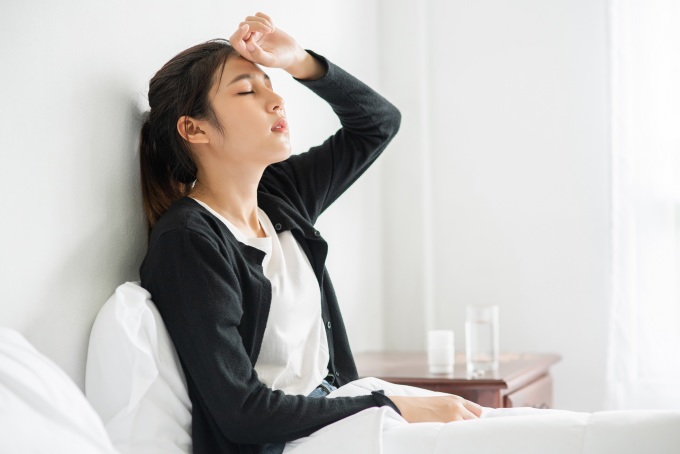Shortness of breath can occur due to many causes and in many different people, so it's important to understand which symptoms require prompt medical attention in each case.
Dyspnea is a condition where the lungs don't take in enough air, making it difficult to breathe or causing the breath to feel weaker than normal. The sensation of dyspnea can vary from person to person. For example, some people may feel like they are suffocating, while others may feel unable to take deep breaths. Dyspnea is uncomfortable and can lead to complications.
Pregnant women
Shortness of breath can occur in both early and late stages of pregnancy. In the first few months of pregnancy, increased progesterone levels cause pregnant women to breathe more than usual. This increased respiratory rate can lead to feelings of shortness of breath. Additionally, fetal growth can reduce the lungs' ability to fully expand, causing shortness of breath.
Pregnant women experiencing shortness of breath should seek medical attention promptly if accompanied by symptoms such as rapid heartbeat, dizziness, chest pain, bluish discoloration of the lips, persistent cough, coughing up blood, fever, or chills.
Children
Shortness of breath in children can be caused by exercise, but sometimes it is also a symptom of asthma, lung disease, or heart disease. Children with shortness of breath should see a doctor if: they wheeze, cannot sleep because of difficulty breathing, or are unable to breathe properly at rest...

Shortness of breath is a condition where the lungs don't take in enough air, causing weak or labored breathing. (Image: Freepik)
Older people
Age is not the cause of shortness of breath, but older adults are at risk of developing certain medical conditions that can lead to shortness of breath, such as heart failure and chronic obstructive pulmonary disease (COPD).
Older adults should see a doctor if they experience shortness of breath and chest pain, discomfort, dizziness, fainting, difficulty breathing at night, swelling, or coughing up blood.
People who have Covid-19
Shortness of breath is a common symptom in people with Covid-19. This condition may be caused by pneumonia. According to the US Centers for Disease Control and Prevention (CDC), shortness of breath is also more common in people who are frequently hospitalized than in those who are less frequently hospitalized.
Patients with COVID-19 should seek medical attention if they experience shortness of breath accompanied by: fever, cough, fatigue, loss of smell and taste, headache, and general body aches.
Other cases
Other common causes of shortness of breath may include:
Exercise : The exertion during exercise often increases your breathing rate and can cause you to breathe heavily.
Mood and emotions : When a person experiences feelings of fear or panic, it can also affect breathing, leading to shortness of breath.
Changes in altitude : Air pressure decreases with increasing altitude. This decrease in pressure means that the volume of inhaled air contains less oxygen, and the body has to work harder to breathe. Statistics show that altitudes of approximately 1,524 meters and above can lead to changes in breathing patterns, including shortness of breath.
Environmental pollutants : Inhaling certain types of smoke, pollutants, and chemicals can irritate the lungs. This irritation causes the airways to narrow and inflammation to develop, leading to difficulty breathing.
In the above cases, you should see a doctor if you suddenly experience shortness of breath or discomfort, pain, or tightness in your chest. Other potentially dangerous warning signs may include: shortness of breath at rest, shortness of breath affecting sleep, fever, wheezing, shortness of breath after light physical activity or even at rest, etc.
Bao Bao (According to Medical News Today, Healthline )
Source link














































































































Comment (0)